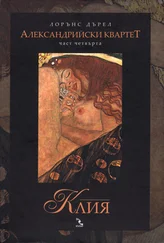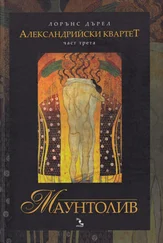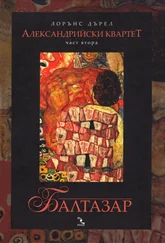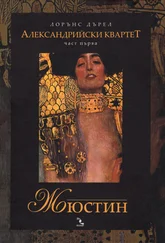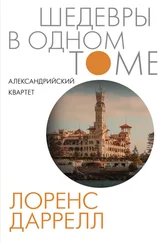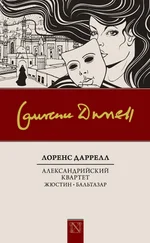Лоренс Даррелл - Prospero's Cell
Здесь есть возможность читать онлайн «Лоренс Даррелл - Prospero's Cell» весь текст электронной книги совершенно бесплатно (целиком полную версию без сокращений). В некоторых случаях можно слушать аудио, скачать через торрент в формате fb2 и присутствует краткое содержание. Жанр: Проза, на английском языке. Описание произведения, (предисловие) а так же отзывы посетителей доступны на портале библиотеки ЛибКат.
- Название:Prospero's Cell
- Автор:
- Жанр:
- Год:неизвестен
- ISBN:нет данных
- Рейтинг книги:4 / 5. Голосов: 2
-
Избранное:Добавить в избранное
- Отзывы:
-
Ваша оценка:
- 80
- 1
- 2
- 3
- 4
- 5
Prospero's Cell: краткое содержание, описание и аннотация
Предлагаем к чтению аннотацию, описание, краткое содержание или предисловие (зависит от того, что написал сам автор книги «Prospero's Cell»). Если вы не нашли необходимую информацию о книге — напишите в комментариях, мы постараемся отыскать её.
Prospero's Cell — читать онлайн бесплатно полную книгу (весь текст) целиком
Ниже представлен текст книги, разбитый по страницам. Система сохранения места последней прочитанной страницы, позволяет с удобством читать онлайн бесплатно книгу «Prospero's Cell», без необходимости каждый раз заново искать на чём Вы остановились. Поставьте закладку, и сможете в любой момент перейти на страницу, на которой закончили чтение.
Интервал:
Закладка:
'Loneliness, Loneliness, You are bitter company to us.'
Afterwards we walk down in the warm night to the dark slipway, and, as the moon is rising, shake out the jib of the Van Norden, start her engine, and put our noses northward into the night.
Light move on the darkness hardly grazing the surface of the consciousness. From the receding shore, clear on the water, we can hear Zarian still contending some majestic literary theme. N. curls in a rug and dips her grapes over the side in the shining sea. And hollow over the harbour, speeding us with the promise of a safe arrival, St. Spiridion strikes the hour of midnight.
4.7.37
We breakfast at sunrise after a bathe. Grapes and Hymettos honey, black coffee, eggs, and the light clear-tasting Papastratos cigarette. Unconscious transition from the balcony to the rock outside. Lazily we unhook the rowboat and make for the point where the still blue sea is twisted in a single fold — like a curtain caught by a passing hand. A shale beach, eaten out of the cliff-point, falling to a row of sunken rocks. A huge squat fig-tree poised like a crocodile on the edge of the water. Five fathoms directly off the point so that sitting here on this spit we can see the dolphins and the steamers passing within hail almost. We bathe naked, and the sun and water make our skins feel old and rough, like precious lace. Yesterday we found the foetus of an octopus, colourless ball of gelatine, which throbbed invisibly in the palm of the hand; to-day the fisherboys have found our beach. They have written Angli (“A[Greek]') in charcoal on one of the rocks, we have responded with 'Hellenes' which is fair enough. We have never seen them. N. draws a little head in a straw hat with a great nose and moustache.
5.7.37
Yesterday was a fisherman's holiday; first a great glistening turtle was washed up on the beach at the cliff edge. It was quite dead and its heavy yellow eyelids were drawn down over its eyes giving it a sinister and reptilian air of being half asleep. It must have weighed about as much as the dinghy. I expected the fishermen to make some use of the meat but nobody has touched it-except the village dogs which have been worrying its flippers.
More exciting was the killing of the eel. We were unhooking the boat when a small boy who was helping us cast off pointed to something in the water and exclaimed 'Zmyrna'. I was about to probe about with an oar — for I could see nothing in the shadow of the great rock — when Anastasius came running like a flash from the carpenter's shop. He held two heavy four-pronged tridents. For a moment or two he stared keenly down into the water; we could see nothing beyond the movements of marine life, the swaying of the seaweed fronds and the strange flickering passage of small fish. Then Anastasius lowered a piece of wood — simply the unshod shaft of a trident — into the darkest patch of the shadow. There was a small audible snap — as of a rat-trap closing — and his shoulders became rigid; maintaining his pressure on the wood he picked up a trident and lowering the point slowly into the water suddenly struck home at an angle. There was a sudden convulsion among the seaweed and the head of the eel emerged; it seemed to our terrified eyes about the size of a dog's head and infinitely more senseless and wicked. The trident had pierced the skull and while it was still dazed from the blow Anastasius strove to dislodge it from its perch. Help, too, was at hand. Old Father Nicholas came racing down with a couple of sharpened boat-hooks and these were driven into the meaty shoulders of the eel.
It took three of them to lug it on to the rock, and for a quarter of an hour on dry land it fought savagely, with two tridents piercing its brain and two more in its sides. I can hear the dry snapping of its jaws on the stick as I write. It had muscle on it like a wrestler, and its tail tapered into a great finned bolster of brown gristle-a turbine; altogether the whole fish looked more like an American invention than anything from the water-world; and it had the ferocity and determination of Satan. It was interesting to see how afraid its evil aspect made one; long after it was dead the peasants were driving their tridents into it with imprecations; and everyone gave it a wide berth until it stiffened with an un-mistakable rigor.
Another reflection of this anxiety: Helen was given a terrific scolding because she was in the habit to poking about in the rocks at low tide barefooted. 'And if such an animal got you?' Anastasius kept repeating. 'And if such an animal got you?'
The children stood like carvings by the sea in their red flannel frocks, never taking their eyes off the dead eel. They all had their thumbs in their mouths. Then Sky removed her thumb with a little sigh and said: 'Let's go,' and they trotted off up among the olive-trees.
To-night we shall have eel-meat with red sauce for supper.
6.7.37
At night the fishing-boats put out; they carry great carbideflares to attract the fish to the nets, and the dark bulk of the Albanian shadow opposite is studded with their jewelled fires. Dark red and smoky, occasional fires glow on the hills themselves; yellow and small along the sealine shine the lights of the solitaries who hunt alone in boats with tridents. I must record the method and the instruments employed in carbide fishing — but to-night my mind is full of a story which Nicholas has been telling me. It concerns two lovers in Corcyra during the occupation of the Turks. He was an Albanian Moslem and she a Greek. During a political crisis he was banished from the island and she was kept guarded in a country-house on the coast; before he left they agreed to signal to each other by lighting fires — he on the tip of Cape Stiletto and she at Govino on the second Sunday of every month. For three years these fire-messages passed telling each of them that the other was well. Then one night the girl died and her attendants forgot to light the accustomed fire. The fire on the Cape, however, burned at the accustomed time. But when her Albanian lover saw no response to his message he knew that something serious was afoot and crossed over to the island to try and visit her. He was caught and murdered. Yet ever since then on the second Sunday of every month there is a fire alight on the end of Cape Stiletto; it burns brackishly for a few hours and then goes out. Sometimes it shows a greenish flame. It is not a carbide-fisher as there is no shallow beach off the cape; it is not a scrub-fire because on this bare promontory there is nothing but rock. It is, says Nicholas, the Albanian sending his message — a message to which there is never any answer, for Govino headland lies dark and unresponsive to the west, under the hump of shadow from the mountains.
7.7.37
The boat rides beautifully. N. has christened her the Van Norden. Now in the still weather we keep her anchored close under the balcony; she is smart in her black paint with brass fittings and a white awning. Yesterday we took her out in a fresh north-easterly wind up as far as the Forty Saints. I wanted to conquer my timidity about a following wind. But she ran before it like a knife. The wood around the lead keel however is puffed and cankered; she must come out and be painted against worms. I notice that we speak about her in the compassionate and familiar way that people speak about their pets. The young schoolmaster Niko is full of envy, and in order to show off we invited him for a sail in the evening. He handles her much more sensitively than either of us; with roughness and determination, with an unerring sense of what to ask her. She turns upwind like a dancer and falters into the still water under the house like a vessel of silk.
II. THE ISLAND SAINT
The island is really the Saint: and the Saint is the island. Nearly all the male children are named after him. All the island craft carry his tintype — mournful of beard and brow — nailed to their masts of unseasoned cypress wood. To use his name in an oath is to bind yourself by the most solemn of vows, for St. Spiridion is still awake in Corcyra after nearly two thousand years on earth. He is the Influence of the island.
Читать дальшеИнтервал:
Закладка:
Похожие книги на «Prospero's Cell»
Представляем Вашему вниманию похожие книги на «Prospero's Cell» списком для выбора. Мы отобрали схожую по названию и смыслу литературу в надежде предоставить читателям больше вариантов отыскать новые, интересные, ещё непрочитанные произведения.
Обсуждение, отзывы о книге «Prospero's Cell» и просто собственные мнения читателей. Оставьте ваши комментарии, напишите, что Вы думаете о произведении, его смысле или главных героях. Укажите что конкретно понравилось, а что нет, и почему Вы так считаете.


